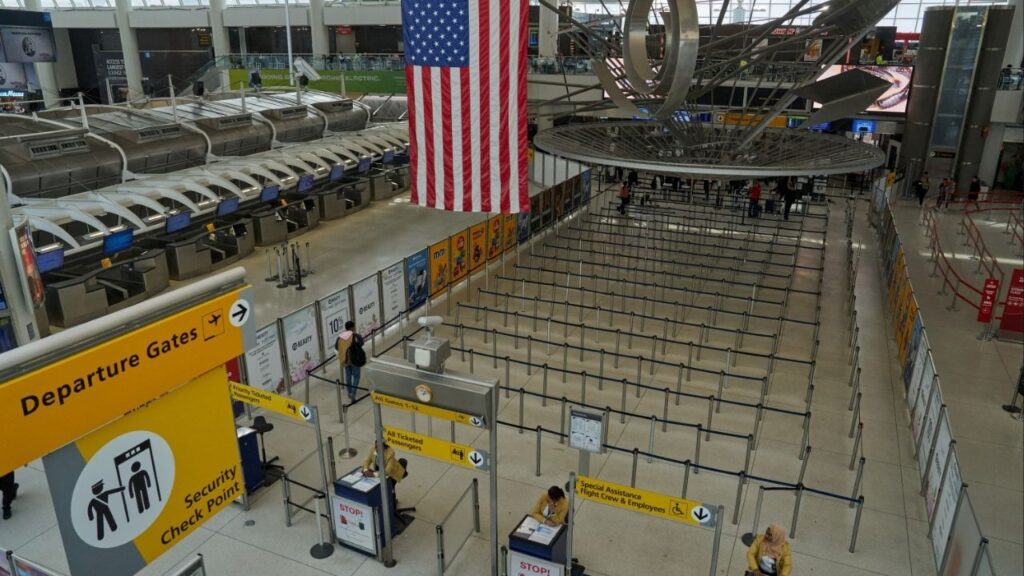Voters in 41 states face crucial decisions on abortion, elections, and more through ballot measures this fall. (AP File)

- Nine states will vote on constitutional amendments to enshrine abortion rights, reflecting post-Roe v. Wade shifts.
- Measures in multiple states propose open primaries, ranked choice voting, and other election reforms.
- Economic proposals include minimum wage increases, paid sick leave, and property tax changes in several states.
Share
|
Getting your Trinity Audio player ready...
|
Life, death, crime and taxes will be on ballots for voters to decide this fall.
More than 140 measures are going before voters in 41 states during the general election alongside choices for president and other top offices. The ballot questions will give voters a chance to directly decide some consequential issues, instead of deferring to their elected representatives.
Some ballot measures also could draw more people to the polls, potentially impacting results for the presidency in swing states, control of Congress and the outcomes for closely contested state offices.
Arizona, Colorado and California have the greatest number of ballot measures. More could still get placed on ballots in some states. And some measures could get bumped from ballots if pending lawsuits are successful.
Here’s a look at some of this year’s top ballot issues.
Abortion Rights on the Ballot in Multiple States
Initiatives dealing with pregnancy have surged in response to the 2022 U.S. Supreme Court ruling that ended a nationwide right to abortion and shifted the issue to states.
At least nine states will consider constitutional amendments enshrining abortion rights — Arizona, Colorado, Florida, Maryland, Missouri, Montana, Nebraska, Nevada and South Dakota. Most would guarantee a right to abortion until fetal viability and allow it later for the health of the pregnant woman.
Nebraska is the only state with a competing measure. It would place into the constitution the state’s current 12-week abortion ban with exceptions for rape, incest and to save the life of the pregnant woman. If both pass, the one with the most votes will take effect.
A proposed amendment in New York doesn’t specifically mention abortion but would prohibit discrimination based on “pregnancy outcomes” and “reproductive healthcare and autonomy.”
Related Story: What Voters Outside the Democratic Bubble Thought of Harris’ Speech
Voting Rights and Election Reforms on State Ballots
Republican-led legislatures in eight states proposed amendments declaring that only citizens can vote.
A 1996 U.S. law prohibits noncitizens from voting in federal elections, and many states already have similar laws. Yet specific constitutional bans are being proposed in Idaho, Iowa, Kentucky, Missouri, North Carolina, Oklahoma, South Carolina and Wisconsin. The measures are part of a Republican emphasis on immigration and election integrity.
Though there is no indication of widespread voting by noncitizens, some municipalities in California, Maryland, Vermont and Washington, D.C. do allow it for certain local elections.
Measures in Idaho, Montana, Nevada and South Dakota would create open primary elections, in which candidates from all parties appear on the same ballot and a certain number advance to the general election. Arizona voters will decide between competing proposals that would require either open primaries or the state’s current method of partisan primaries. If both pass, the one with the most votes will take effect.
A Florida measure would expand partisan elections to school boards, reversing a 1998 amendment that made them officially nonpartisan, removing party labels from ballots.
Measures in Idaho, Nevada and Oregon propose ranked choice voting, in which voters rank their preferences for candidates, with votes cast for the lowest-finishing candidates getting reallocated until one person obtains a majority.
Ranked choice voting currently is used in Alaska and Maine. But Alaska voters will consider whether to repeal provisions of a 2020 initiative that instituted open primaries and ranked choice general elections. Missouri’s citizens-voting measure also would ban ranked choice voting.
A Connecticut amendment would authorize no-excuse absentee voting. A Nevada proposal would require photo identification to vote in-person or the last four-digits of a driver’s license or Social Security number to vote by mail. If approved, the Nevada measure would require a second affirmative vote in 2026 to take effect.
Related Story: Supreme Court Rejects GOP Push to Block 41K Arizona Voters, but Partly OKs ...
Marijuana Legalization and Other Drug-Related Measures
Voters in Florida, North Dakota and South Dakota will decide whether to legalize recreational marijuana for adults. It will be the third vote on the issue in both North Dakota and South Dakota. About half the states currently allow recreational marijuana and about a dozen more allow medical marijuana.
In Massachusetts, an initiative would legalize the possession and supervised use of natural psychedelics, including psilocybin mushrooms.
A California proposal would toughen punishments for repeat shoplifters and fentanyl dealers and create a new drug court treatment program for people with multiple drug possession convictions. The measure would reverse portions of a 2014 initiative that reduced penalties for nonviolent drug and property crimes to address prison overcrowding. The latest measure comes after a surge of groups committing smash-and-grab thefts at stores.
An Arizona measure would make it a state crime to enter from a foreign country except through official ports of entry, and for someone already in the U.S. illegally to apply for public benefits using false documents. The border crossing measure is similar to a challenged Texas law that the Justice Department says violates federal authority and would create chaos at the border.
Arizona’s measure also would make it a felony to sell fentanyl that causes a person’s death.
Related Story: Clovis Voters Will Decide Whether to Raise City Sales Tax
Economic Measures: Taxes, Wages, and Benefits
A California measure would gradually raise the state’s minimum wage for all employers to $18 an hour. Measures in Alaska and Missouri would gradually raise minimum wages to $15 an hour while also requiring paid sick leave. A Nebraska measure would provide paid sick leave but not change wages.
A Massachusetts measure would gradually raise the minimum wage for tipped employees until it matches the rate for other employees. By contrast, an Arizona measure would let tipped workers be paid 25% less than the minimum wage, so long as tips push their total pay beyond the minimum wage threshold.
North Dakota voters will consider a first-of-its-kind move to eliminate property taxes. If approved, local governments could need more than $3 billion biennially in replacement revenue from the state, which collects billions in taxes from the fossil fuel industry.
Rising property values also have spurred measures to cap or cut assessed property values or taxes in Colorado, Florida, Georgia and New Mexico.
Arizona has a unique proposal linking property taxes and responses to homelessness. It would let property owners seek property tax refunds if they incur expenses because a local government declined to enforce ordinances against illegal camping, loitering, panhandling, the obstruction of public thoroughfares, public urination or defecation, or the public consumption of alcohol or illegal drugs.
RELATED TOPICS:
Categories

What to Know About Widening Fallout From Bombing of Iran



















